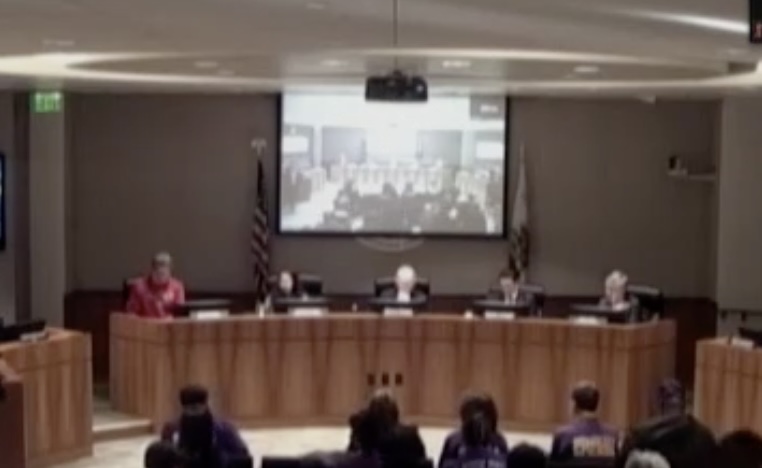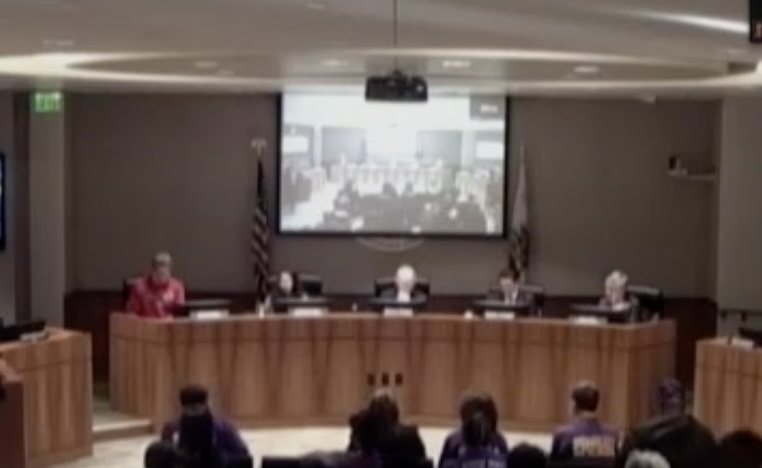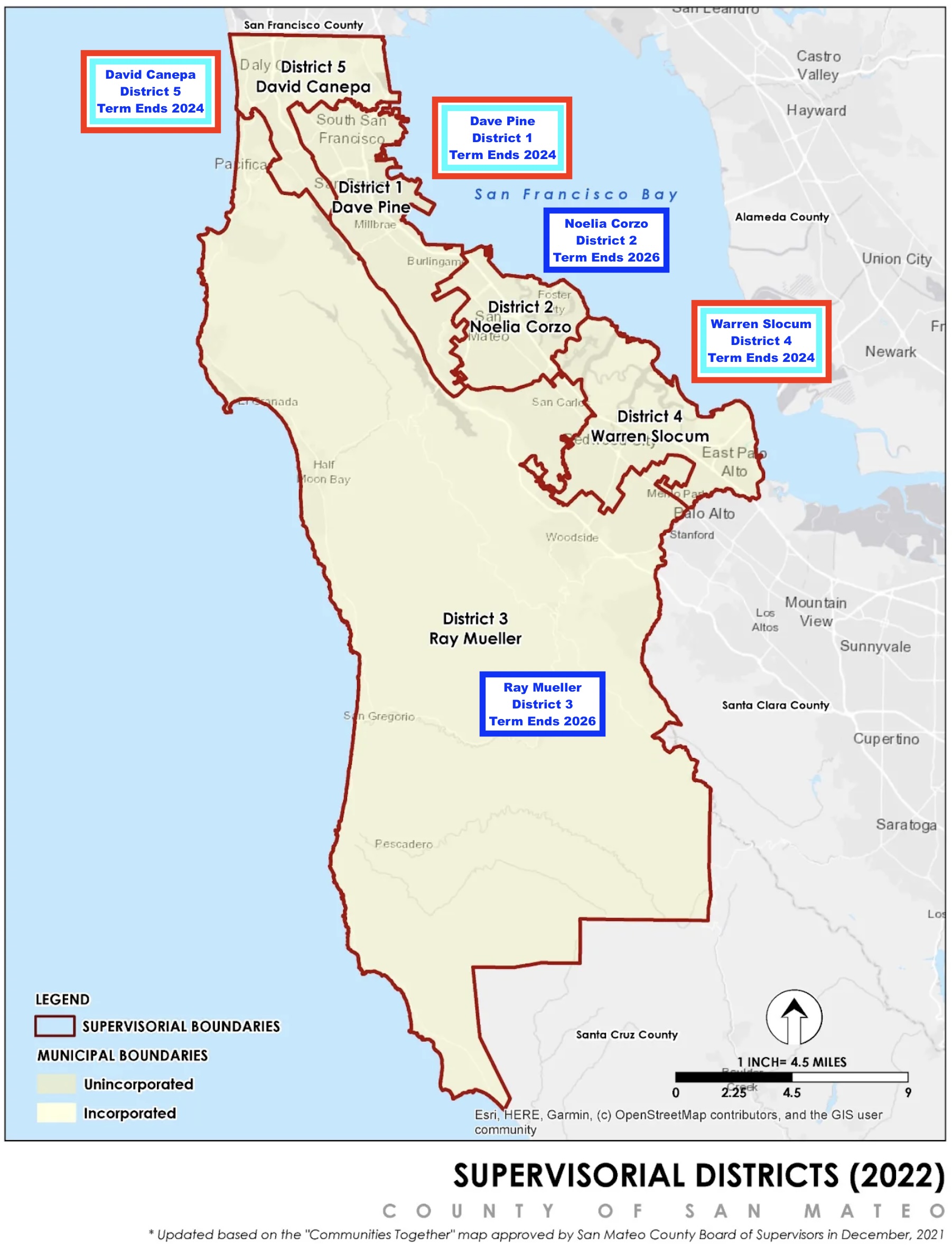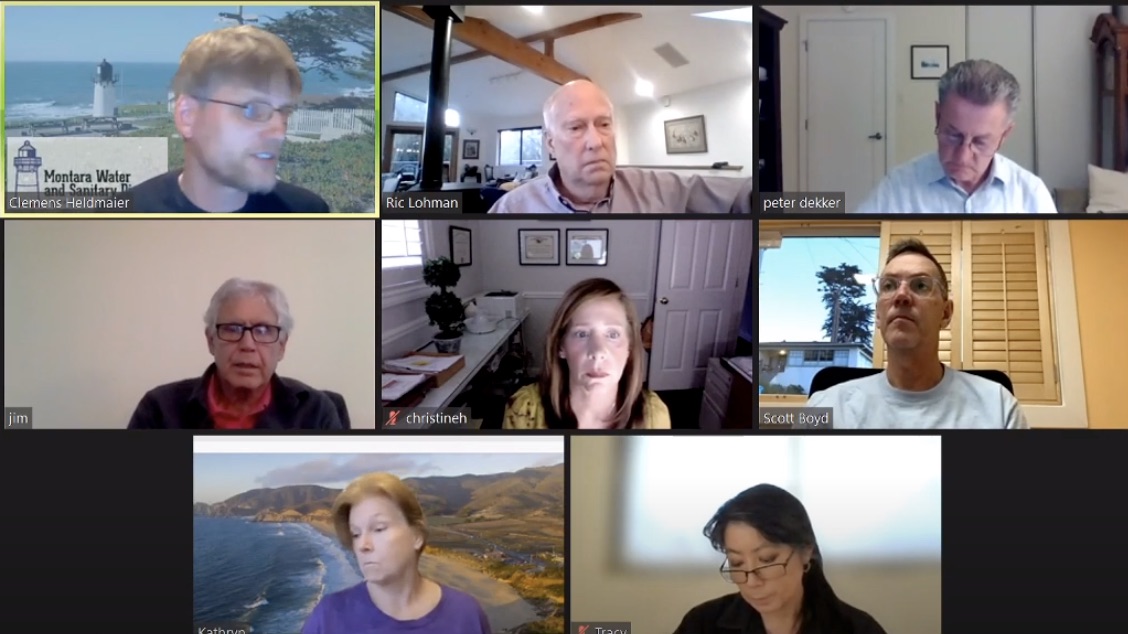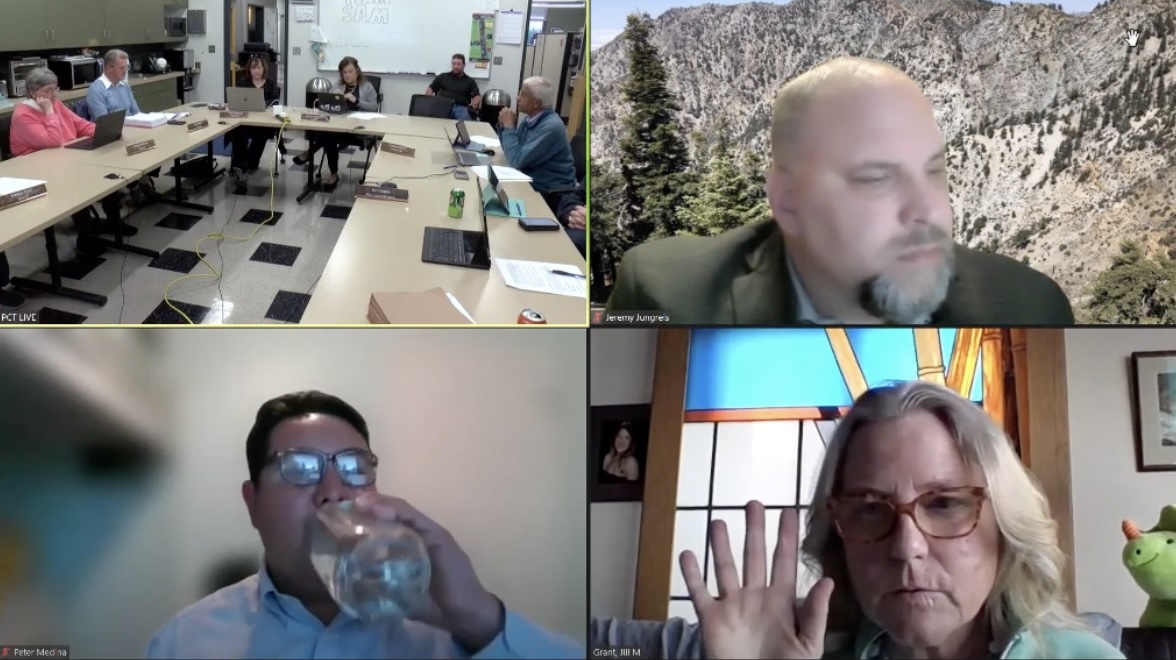|
Getting your Trinity Audio player ready...
|
VIDEO and STAFF REPORT. From San Mateo County Supervisors meeting on Tuesday, January 30th, 2024 at 9:00am, as a hybrid meeting.
Click for 1/23/2024 Video
Starts at 1:12:20
Item #4: Introduce the Hopeful Horizons: Empowering Lives Initiative, a new San Mateo County Ordinance Code regulating encampments on public property in the unincorporated areas of San Mateo County.
Click for 1/30/2024 Video
Starts at 1:12:29
Item #12: Adopt San Mateo County Ordinance Code regulating encampments on public property in the unincorporated areas of San Mateo County
1/30/2024 Staff Report
 Adopt the “Hopeful Horizons: Empowering Lives Initiative”, an ordinance adding a new Chapter 3.109 to Title 3 of the San Mateo County Ordinance Code regulating encampments on public property in the unincorporated areas of San Mateo County, previously introduced on January 23, 2024, and waive the reading of the ordinance in its entirety. (Warren Slocum, Dave Pine)
Adopt the “Hopeful Horizons: Empowering Lives Initiative”, an ordinance adding a new Chapter 3.109 to Title 3 of the San Mateo County Ordinance Code regulating encampments on public property in the unincorporated areas of San Mateo County, previously introduced on January 23, 2024, and waive the reading of the ordinance in its entirety. (Warren Slocum, Dave Pine)
The Board of Supervisors voted 4-1 to adopt the resolution with Supervisor Corzo casting the “nay” vote. The item was moved to the Regular Agenda for discussion before Board action. See Consent Agenda, Item No. 12, for more information.
To: Honorable Board of Supervisors
From: Supervisor Warren Slocum, District 4 and Supervisor Dave Pine, District 1
Subject: Hopeful Horizons: Empowering Lives Initiative Ordinance Regulating Encampments on Public Property in the Unincorporated Areas of San Mateo County
RECOMMENDATION
Adopt the Hopeful Horizons: Empowering Lives Initiative, an ordinance adding a new Chapter 3.109 to Title 3 of the San Mateo County Ordinance Code regulating encampments on public property in the unincorporated areas of San Mateo County, previously introduced on January 23, 2024, and waive the reading of the ordinance in its entirety.
BACKGROUND
The County is dedicated to reaching and maintaining Functional Zero homelessness, where every unsheltered homeless person in San Mateo County who chooses assistance will be provided interim or permanent housing. A key part of that goal involves appropriately addressing homeless encampments, which are plagued by fire risks, unsanitary conditions, public safety hazards, and environmental degradation; are unsafe and unhealthy for individuals living in them; and make surrounding communities less safe and less healthy.
The County recognizes that homelessness is connected to trauma in a number of ways, as individuals and families experiencing homelessness face the daily trauma of not knowing whether they will be able to sleep in a safe environment or obtain regular meals; are highly vulnerable to violence, victimization, and adverse health outcomes; and a disproportionate number of those experiencing homelessness have suffered past forms of trauma, such as child abuse and domestic violence.
Thus, when engaging with homeless individuals living in encampments, the County employs, and will continue to employ, multi-disciplinary outreach teams who are trained to utilize trauma-informed care, an evidence-based practice that recognizes the trauma associated with homelessness and focuses on tenets such as safety, compassion, trustworthiness, learning, and empowerment.
The County’s trauma-informed engagement efforts directed to homeless individuals living in encampments include: Coordinated Entry System (“CES”) assessment and placement; transportation assistance; food and hygiene resources and care kits; referrals to Street Medicine and/or the Homeless Engagement Assessment and Linkage (HEAL) program, which provides field-based mental health and additional treatment; connection to the Healthcare for the Homeless outreach team for linkages to primary care, dental, and/or vision services; assistance with obtaining vital documentation (ID, Social Security Card, birth certificate); and assistance with employment resources.
Further, when engaging with homeless individuals living in encampments, the County’s outreach and enforcement teams are, and will remain, cognizant of potential language barriers, and take steps to comply with the County’s Language Access Policy, which calls for meaningful access to County services, programs, benefits, and information for all County residents, regardless of their English language proficiency. Additionally, when engaging with homeless individuals living in encampments, the County’s outreach and enforcement teams will remain cognizant of providing County services, programs, benefits, and information to all County residents, regardless of citizenship status.
When homeless individuals living in encampments accept shelter, they are placed at one of the County’s congregate or non-congregate shelters, with women and families placed separately from single men.
All individuals placed in a County shelter are assigned a shelter case manager, who will meet with each individual regularly and work with them on a housing-focused case plan, which includes obtaining housing readiness documentation (ID, Social Security Card, birth certificate), applying to housing waitlists, earning income either through benefits (such as General Assistance, Supplemental Security Income, and Social Security Disability Insurance), or securing employment, and addressing healthcare and treatment needs. Shelter stays in the County generally last for 90 to 120 days, but extensions are approved if the individual is actively working on a case plan toward longer-term stable housing.
The County has dedicated significant resources to expanding both interim and long-term housing for residents experiencing homelessness. Since the start of the COVID-19 pandemic in March 2020, the County has added 146 permanent supportive housing units and 409 non-congregate units, including the Navigation Center – which offers 240 safe temporary living spaces for individuals and couples, along with intensive wrap-around support services – and successfully converted five hotels into interim non-congregate housing and permanent supportive housing:
• Coast House (formerly Coastside Inn), a 51-room interim housing site serving the Coastside community; and
• The Pacific Shelter (formerly Pacific Inn), a 74-room interim housing site located in Redwood City; and
• El Camino House (formerly The Stone Villa Inn), a 44-room interim housing site located in San Mateo; and
• Shores Landing (formerly Towneplace Suites), a 95-unit permanent affordable housing site for seniors who were previously homeless or at risk of homelessness, also located in Redwood City; and
• Casa Esperanza (formerly The Comfort Inn), a 51-unit permanent supportive housing site for previously homeless individuals, also located in Redwood City.
DISCUSSION
The Hopeful Horizons: Empowering Lives Initiative (“Initiative”) is intended to allow the County to better address the health, safety, and environmental concerns associated with encampments on public property in the unincorporated areas of San Mateo County and to offer those experiencing homelessness continued access to services, supports, and shelter. Homeless individuals will be placed in shelters that can reasonably accommodate their mental or physical disabilities, that prohibit the attendance or participation of homeless individuals in religious activities or programs as a condition of using shelter space, and that are available regardless of sexual orientation, gender identity or gender expression, religious affiliation, criminal conviction, or pet(s).
The Initiative sets forth a process to remove encampments that are abandoned, active, or a threat to the public’s health and safety, and would operate in tandem with the County’s existing robust trauma-informed engagement efforts. The goal of the Initiative is to move homeless individuals off the streets and into shelter, not into jail.
The Initiative prohibits encampments on public property in the unincorporated areas of the County and makes violations a misdemeanor. However, mindful of the decision of the United States Court of Appeals for the Ninth Circuit in Martin, et al. v. City of Boise (2019) 920 F.3d 584, and related case law, enforcement is expressly conditioned on the availability of shelter. Before enforcement, absent exigent circumstances, the County must issue at least two written warnings. Each written warning will be issued in accordance with the County’s Language Access Policy, provide the person receiving the warning with information about at least one available shelter, and include a written offer of placement in that shelter.
The Initiative further provides that those charged with a misdemeanor violation shall be entitled to participate in appropriate diversion programs offered by the San Mateo County Superior Court.
Recognizing practical difficulties faced by homeless individuals attempting to remove their property from encampments, the Initiative mandates that the County offer reasonable assistance in the removal and temporary storage of such property. The County will also ensure that all storage locations for such property are near accessible transit and reasonable transportation services will be offered to individuals. Because encampment clearances will likely impact surrounding residents, the County also plans to notify all adjacent private property owners within a 300-foot radius before actively clearing an encampment.
At the request of the Board, the ordinance text was amended at the time of its introduction at the Board meeting on January 23, 2024 to clarify that medical and mental health screenings will be done before individuals receive written warnings under the ordinance and to clarify that individuals will not be charged when their property is stored by the County under the terms of the ordinance.
The Initiative was prepared after extensive outreach efforts, and staff received input from various groups, including the Housing Leadership Council, the American Civil Liberties Union, the Superior Court, the Private Defender Program, City Attorneys, City Police Chiefs, non-profit organizations, and faith groups.
The County Attorney’s Office has reviewed and approved as to form the Initiative.
FISCAL IMPACT
The fiscal impact associated with the Initiative is currently unknown, but the County will likely incur increased administrative and enforcement costs. Staff will provide a report regarding such costs at a future Board meeting.
San Mateo County Supervisors Aspire to Lead the Nation in Best Practices for Homelessness, Equity and Affordable Housing
2024 Election
The 2024 Board of Supervisors, from left: Ray Mueller (D3), Noelia Corzo (D2) Warren Slocum (D4, BOS President), David J. Canepa (D5, BOS Vice President) and Dave Pine (D1, outgoing BOS President).


